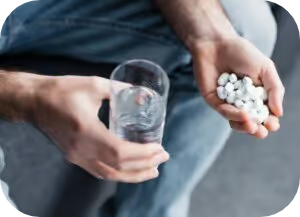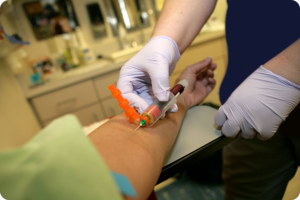Life Insurance for Alcoholics and Heavy Drinkers: Strategies for Securing the Best Rates in [2024]
Are you looking for life insurance for alcoholics but worried about your drinking being an issue? We understand that everyone’s journey is unique, and that includes those who may struggle with alcoholism.
understand that everyone’s journey is unique, and that includes those who may struggle with alcoholism.
That’s why we offer a simple and straightforward solution for individuals like yourself who want to apply for life insurance for heavy drinkers.
With over 40 of the most competitive life insurance companies on board, we provide term life insurance without the need for a medical exam in many cases.
Our goal is to make the process of obtaining coverage as simple and accessible as possible. We believe that your past struggles with drinking shouldn’t prevent you from protecting your loved ones and securing their future.
We have partnered with the highest rated life insurance providers who are willing to offer coverage tailored to your needs without the stress of taking a medical exam.
Don’t let your drinking hold you back from securing the financial protection your family deserves. Keep reading this step-by-step guide to learn more about how to apply, get approved and receive the lowest rates possible.
Table of Contents
- Can Alcoholics Get Life Insurance?
- Will Drinking Heavy Affect Rates?
- Does Life Insurance Cover Alcoholism?
- Application Process for Alcoholics
- Life Insurance for Recovering Alcoholics
- Life Insurance Rate Classifications
- Can I Apply Without a Medical Exam?
- Life Insurance Quotes for Alcoholics
- In Conclusion
Can Recovering Alcoholics Buy Life Insurance?
The question I hear regularly is, can alcoholics get life insurance? The answer to these questions can sometimes go either way.
regularly is, can alcoholics get life insurance? The answer to these questions can sometimes go either way.
It will depend on how much alcohol you currently consume each day. Life insurance coverage for alcoholics is determined on a case-by-case situation.
Just because you consume hard liquor or a high degree of beer on a regular basis, you may not be considered addicted. You may just be considered a heavy drinker who, maybe in good health while consuming high degrees of alcoholic beverages.
A heavy drinker with a drinking-related medical condition will be another story altogether. This indicates drinking-related medical problems that have already started and will probably worsen in time.
Applying for life insurance for moderate drinkers is less complicated and usually ends up with an application approval with a very good health classification. The better your health classification, the lower your premiums.
Does Heavy Alcohol Use Have an Effect on Rates?
The underwriting process for applicants with a past history of alcohol addiction and heavy drinking involves an assessment of the effects of excessive alcohol use on their health.
Anytime you drink a high volume of alcohol and plan to apply for life insurance, your rates may be affected or your application may even be declined if your drinking condition is severe.
Your rates can increase depending on how much alcohol you drink and whether your current health has been affected. Your rate class will determine your premiums once your application has been approved.
Life insurance for heavy drinkers is considered high risk due to the damage alcohol normally causes throughout the years of drinking.
Does Life Insurance Cover Alcoholism?
Purchasing your life insurance before any heavy drinking issues and then later becoming an alcoholic, your alcoholism will be covered. When applying for new coverage and you disclose your history of drinking on the new application, you will also be covered.
If you do not disclose your drinking habits on the application when you complete the alcohol related questions, there could become a claims issue if you die from an alcohol related death.
An insurance company may not cover a death claim due to an omission you deliberately made on your application. Therefore, it is crucial to be honest, and always tell the truth. Lying on an insurance application can become a recipe for disaster when it comes to insurance products, not just life insurance.
Approximately 11,000 people in the US die annually in drunk driving incidents. This is what concerns life insurance companies when you apply.
Will Life Insurance Cover Alcohol-Related Deaths?
A life insurance policy will pay off if you die from an alcohol-related death, such as liver cirrhosis, heart attack, stroke, alcohol poisoning and also alcohol related auto accidents. Sometimes people purchase life insurance and do not have any alcohol dependency at the time of the application.
They may later start drinking in life and become heavy drinkers as the years progress. The life insurance policy they bought years ago will pay for any alcohol-related deaths with no problem.
If you are an occasional drinker before applying for a new application. Make sure you answer all the questions about drinking honestly. Just answer the specific questions on the application without adding any additional information unless you are asked for more details.
Alcohol is the third medical-related cause of death in America. Did you know that 95,000 people die from related deaths each year? This statistic breaks down to 27,000 females and 68,000 males.
How to Get Approved for Coverage
There are many life insurance options for alcoholics, get an experienced agent such as ourselves to explore them for you.
The first task to save time and money is straightforward. Connect with an independent agent, also known as a broker. Your agent will do about 90% of the work for you without cost or obligation.
Your agent’s first job is to run a simple health assessment of your alcohol use and health history. This will also help eliminate any surprises after submitting your application. All this entails is a simple list of questions.
We can help you choose the most applicable company to apply with and set you up with a quick and simple telephone application. This will make your application process a breeze. Securing affordable life insurance for alcoholics is simple, especially when you apply for no-medical-exam life insurance .
How to Buy Life Insurance for Recovering Alcoholics
When I speak about an actual heavy drinker, I refer to people who consume a large amount of alcohol each day. If you look at yourself as an alcohol abuser, you may be already addicted to this chemical.
Your high volume of alcohol consumption puts you into a higher life insurance rate classification. You can contact us and we will review your history of alcohol use and show you your options.
The help you receive from your agent can either make or break your application.
Alcohol Abuse and Suicide Attempts
The statistics indicate that alcoholics are 120 times more likely to commit suicide than those who have no chemical dependency on the drug at all.
chemical dependency on the drug at all.
The national average is someone in the United States tries to commit suicide every 40 seconds.
Also, 29% of all suicide victims in this country had alcohol in their system.
Suicide is prevalent among heavy drinkers, another huge risk for life insurance companies.
If you are a heavy drinker and apply for life insurance after a suicide attempt. There is a slim possibility that your application will be approved. Your only option would normally be to apply for a guaranteed issued life insurance product.
Why Insurers Are Concerned About Alcohol Use
Due to the long-standing connection between alcohol consumption and significant health problems, insurance companies approach this issue with caution.
Anytime you drink, this drug is immediately absorbed into your bloodstream and affects every single part of your body. This can put your health at severe risk and even cause death as time goes by.
Life insurance companies are always concerned about a vast number of medical conditions now or in the future that could lead to death, such as:
1. Pancreas Problems and Damage
2. Possible Onset of Diabetes
3. Passing Out (sudden blackouts)
4. Becoming Addicted to Alcohol
5. Severe Stomach Ulcers
6. Major Chronic Fatigue
7. Severe Liver Damage
8. Malnutrition from Not Eating Properly
9. Heart Destruction: from Heart Valves to Cardiomyopathy
What Is a CDT Test?
A CDT test is simply a blood test to determine how much alcohol a person drinks and the effects it has on the individual’s health. They are essential to measure a person’s body and its dependency and degree of alcohol use. Transferrin is a vital protein substance in the blood that carries valuable iron to the bone marrow, liver, and spleen.
These tests are also necessary to measure transferrin in the bloodstream. When someone drinks in excess, it drastically increases certain types of transferrin that are carbohydrate-deficient.
When carbohydrate-deficient transferrin steadily increases, it can be measured in the bloodstream and therefore is an accurate marker of the degree of abuse.
How Does a CDT Test Work?
CDT is a measurement by taking a sample of an individual’s blood. Those who do not consume alcohol or use small quantities will have much lower carbohydrate-deficient transferrin test levels in their bloodstream.
quantities will have much lower carbohydrate-deficient transferrin test levels in their bloodstream.
On the other hand, people who drink five or more drinks a day for at least five days a week for approximately two weeks before the testing will have CDT at much higher levels.
CDT testing accurately detects individuals who are drinking heavily. If the person stops drinking or slows down, the CDT levels will also decrease.
Then if they start drinking heavily again, the levels will rise to a high degree. This test acts as a fuel gage for the amount of alcohol consumed and is still evident in the body.
Tips for Getting Approved When Applying for Life Insurance
Showing that you are doing your part to improve your health goes a long way with the underwriters.
A person that drinks heavily or is a total alcoholic, can show insurance company underwriters that they are making a strong attempt to stop drinking and improve their health.
Applying for life insurance for alcoholics if you are in a recovery program, having AA membership, being is a treatment facility, working with a support group or getting therapy or counseling.
Medical Tests for Alcohol Dependency
Other than the very common and well known CDT test. The four other tests below can reflect more reliable information to determine alcohol dependency and a drinker’s health status.
1. Gamma-Glutamyl Transferase (GGT) Test
2. Ethyl Glucuronide (EtG) Test
3. Alanine Aminotransferase (ALT) Test
4. Aspartate Aminotransferase (AST) Test
Health Classifications and How They Affect Your Premiums
The health classification you receive is a key factor in setting your insurance rates. Getting the best health classification possible should always be the primary goal of getting the best life insurance rates.
Preferred Best Rates:
Preferred Best is the best classification possible, and it’s for above-average healthy applicants. These are the very best classes you can be assigned. About 10% of all applicants qualify for the preferred best rates.
Preferred Rates:
Preferred Non-Tobacco is an excellent rate class for healthy applicants that may have minor health conditions. For example, some diseases like high blood pressure or high cholesterol controlled by drugs can fall into a preferred classification.
Standard Plus Rates:
The Standard Plus rate class is for relatively healthy applicants with multiple or more severe conditions.
Standard Rate Class:
This class is similar to standard plus but for applicants with several more serious medical conditions.
Substandard Classes:
Substandard health classes can use table ratings which generally begin with an A and go down to the letter J. Some companies will use the number system, 1-10. For example, “Standard Rate Table B” or “Standard Rate Table 2”. See our blog post on rate classification for more information.
Term Life Insurance Will be Your Best Option
Term life insurance is the clear preference for individuals with alcohol habits and heavy drinking, given its cost-effectiveness.
The first question someone shopping for life insurance for alcoholics will ask is, how much will life insurance cost? Many variables determine an applicant’s premium. The plan design choice to focus on will be affordable term life insurance.
Term plans will cost a fraction of any other plan design. It would help if you considered that your specific drinking habits could possibly increase your premiums.
Term life insurance will be your only logical choice when adding that extra cost factor. On the other hand, universal life is an excellent permanent plan design but will cost more.
Becoming a Member of Alcoholics Anonymous
Consulting with a group like Alcoholics Anonymous for assistance is a recommended approach. During their meetings, you can converse with individuals dealing with alcohol dependency and those in recovery, offering you a chance to learn from their experiences in controlling their drinking habits.
Alcoholics Anonymous is a beneficial organization with a vast degree of experience. Alcoholics Anonymous also has a large staff of professional counselors that can show you how to control your drinking habits and answer all your questions.
There is nothing wrong with alcohol consumption as long as you can keep it under control and limit your use of alcoholic beverages.
Alcohol Related Motor Vehicle Violations
Recent alcohol-related driving convictions can cause an application to be declined.
If your driving record shows that you have been arrested for a DUI or DWI in the last few years, your application could be declined. Statistics show that hundreds of people are killed each year by operating a motor vehicle while intoxicated. 
When applying for life insurance, the last straw is a history of heavy drinking and driving drunk on an application.
Life insurance companies do not like the idea of an intoxicated individual knowing they have been drinking but still deciding to get behind the wheel.
This tells the insurance carriers you will jeopardize your life and other people’s lives also.
What is “No Medical Exam” Life Insurance?
No-Medical-Exam life insurance will only be an option if you are in good health and your alcohol consumption is not severe.
If you plan on applying for life insurance for alcoholics, consider the non-medical exam options if you go this route. You will not have to take a physical exam at all.
In addition, purchasing non-med plan designs typically means not having to produce medical records from your doctor’s office. All of the best life insurance companies have this option with your choice of plan designs.
A few people who apply for life insurance for alcoholics find this an excellent route. The turnaround time can also be very quick, 24 to 48 hours.
You can still get excellent life insurance rates with no medical exam life insurance, but they are a little more expensive. A fully underwritten policy typically takes a month to six weeks to approve.
What’s the Procedure for Securing the Best Life Insurance Rates for Alcoholics?
If you are ready to start comparing plan designs and premiums. You can begin comparing rates from the most competitive companies in your state.
Our quoting system will display the best rates from over 40 of the most competitive life insurance companies.
In addition, we can give you a more accurate quote if you have any health concerns by calling us. You will find that affordable term life insurance will be the most cost-effective with no close second.
Our Final Thoughts
If you are an alcoholic or a recovering alcoholic, we can help you get the best life insurance rates. There is never any cost to apply, and there is no obligation.
We work with the most alcohol-friendly carriers to provide the best rates and approvals for heavy alcohol users.
Thank you for reading this blog post; I hope it has answered many of your questions.
All the best,
Jack Venturi
Should you have any questions or need further assistance, please don’t hesitate to call us at 815-390-7545 for a prompt response.


